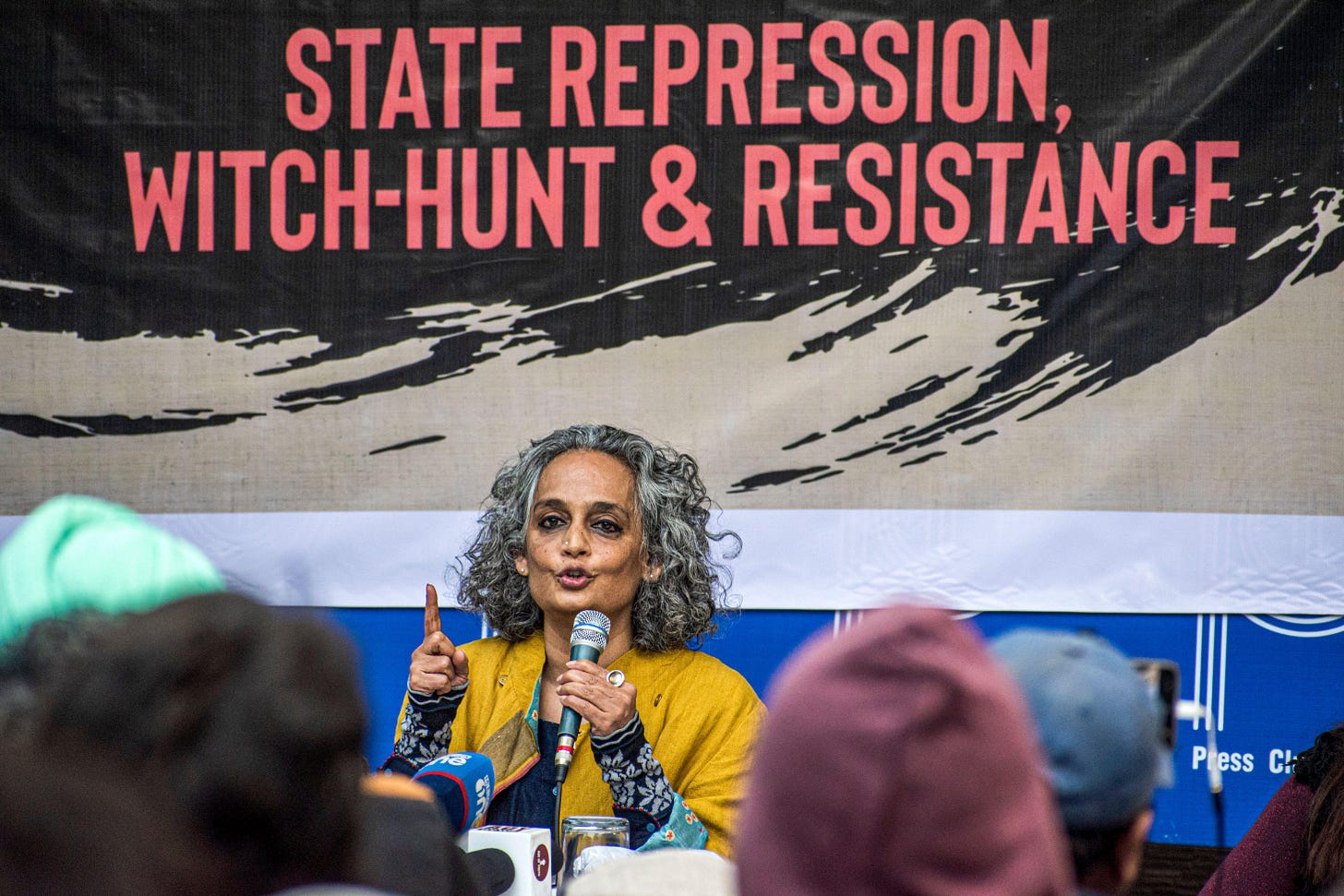The Indomitable Arundhati Roy
As Narendra Modi's administration gives permission for the celebrated writer to be prosecuted for a speech she made 14 years ago, BJ Sadiq surveys her history as a warrior in pursuit of truth.

The Man Booker Prize ceremony of 1997 turned Arundhati Roy into the celebrity she is. When the jury announced that she had bagged the coveted prize, the 36-year-old Roy, youngest to receive the honour, made her way to the stage, almost in disbelief, amidst an applauding audience, most of whom had read her debut book and relished her brilliance. Of course she had known that this was going to be a life-changing moment; that she could no longer remain hidden; that she would be loathed as well as adored, like most public intellectuals.
Teardrops rimmed her eyes as she attempted her speech. It was honest and downright emotional; just like the characters in her lyrical novel The God of Small Things. ‘I came here without preparing a speech,’ she said, breaking into a suppressed, most incorruptible and ambrosial smile. There was something about her book; something new, although in its vividness, in its entire literary merit, it cast the mind to some of DH Lawrence’s finest works.
For several years after her maiden novel, Roy seemed to have turned her back on fiction, and instead, produced a torrent of incendiary essays and books, deeply affected by the course her country’s politics had taken around the turn of the century. “I am a bit short with people who say, ‘you haven’t written anything again,’ as if all the non-fiction I have written is not writing,” she blurted out in her defence, in an interview given to The New York Times some years ago.


